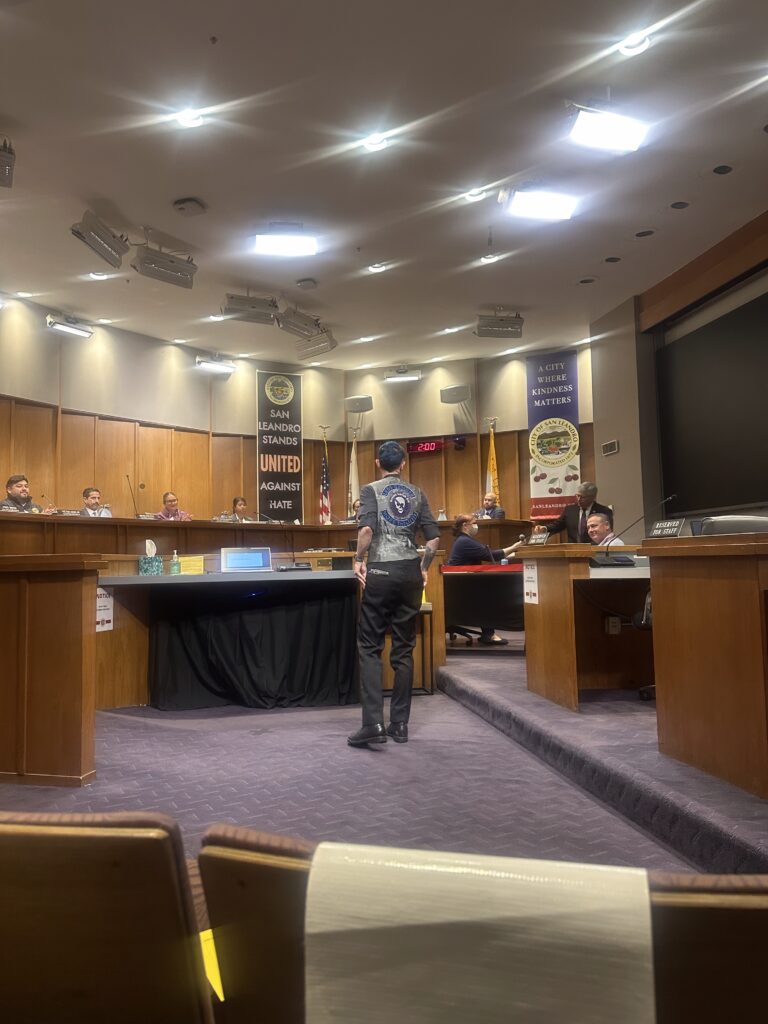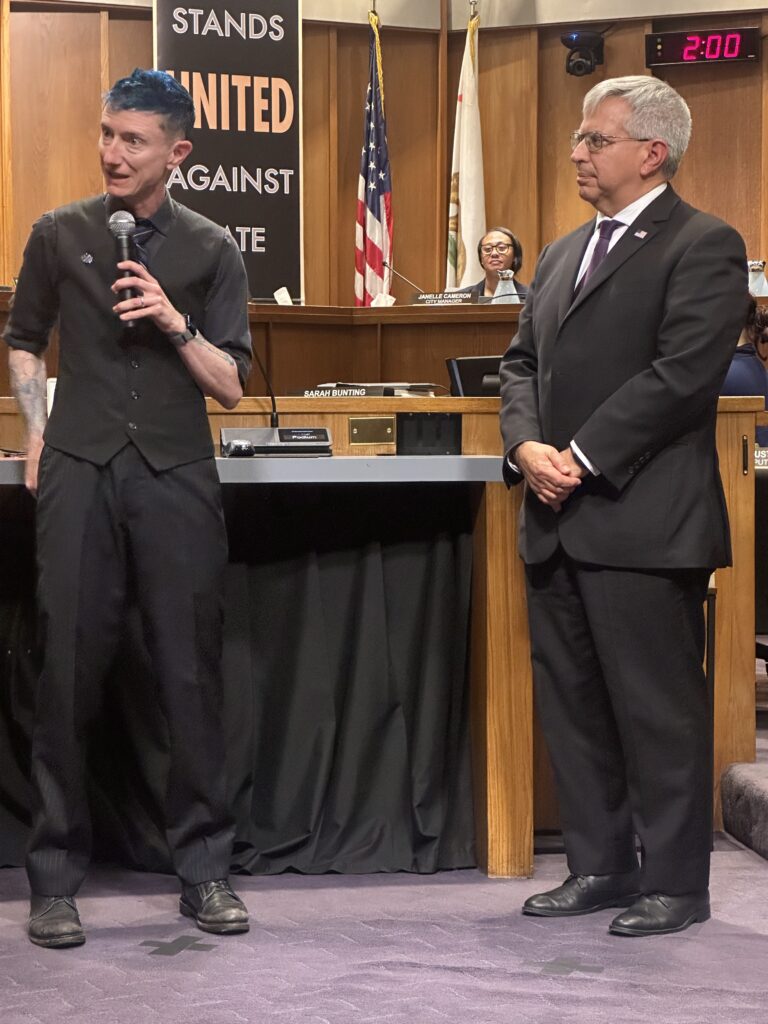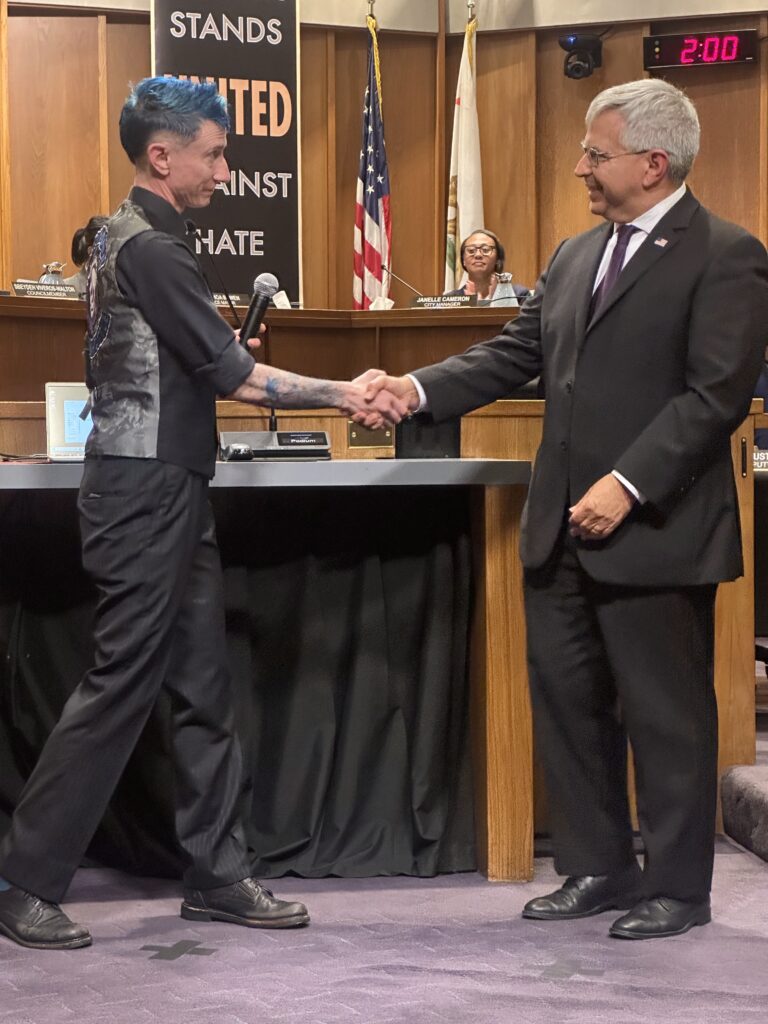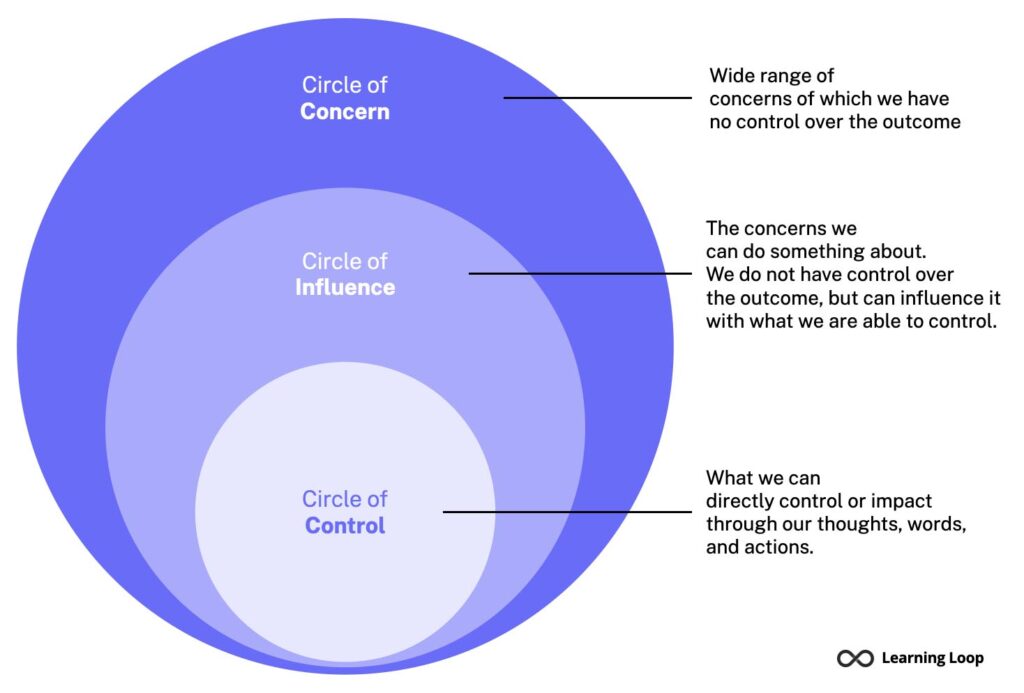A couple weeks ago, a neighbor reached out to me to ask me if I’d like to be visible for the city. Our little suburban home resides in a sanctuary city, for which I am endlessly grateful and also wish had significantly more teeth. For Trans Day of Remembrance, the mayor wanted to recognize a local trans person. I’m from the midwest, and have often been seen as the only trans person in a social group, on a team, and sometimes even at a whole organization (until, of course, people see me and start feeling confident enough to come out themselves). So sure, if you are willing to give me the mic for 2 minutes, I’m happy to do The Thing.
Here’s roughly what I said:
Hello, and thank you so much for this step in standing with trans people. I’m honored to have become a San Leandran 5 years ago, to raise my 4 year old here with my spouse, and I look forward to (hopefully) spending the rest of our years here. I am agender and queer, and use they/them pronouns.
The few trans friends I have made in San Leandro are moving away, because standing with us in a safe room is not the same as standing with us in the streets. Standing with us in the streets also means standing with the other scapegoats of this authoritarian regime, our immigrant neighbors. Some immigrants are trans folks who escaped countries unsafe for them only to find this country becoming the same. We believe this unaccountable ICE presence rounding up our immigrant neighbors could come for others next.
When the country doesn’t have our backs, our state must. Disappointingly, Gavin Newsom is throwing us under the bus. When our state doesn’t have our backs, our city must. I’m must report that our city refuses to stand against ICE when they actually show up, leaving our militarized police force only militarized against its own citizens and not against a reckless federal takeover in our neighborhoods.
So what can you do? Look at ways to demilitarize our police force— especially if they are not willing to stand with us to protect our neighbors. Stop storing sensitive data about us via things like Flock cameras that can be hacked or forced to be shared with a reckless federal force rounding up long-term residents, regardless of if they have us citizenship, kids, or are strengthening our community. Consider hiring a sanctuary consultant to figure out how to live up to our sanctuary policy with real action, not just this talk – although the talk does mean something.
I know these are medium-term actions, so here is something you can do tonight, when you get home, to promote solidarity with your trans neighbors: start using your pronouns consistently in public emails and writing. Add them to your email signature lines. Tomorrow, add them to the city website.
A reckless force has come to our city. Soon, they could be knocking on my own family’s door. With this limited official support, I continue to build solidarity with my neighbors. My neighbors have my back as I have theirs. Neighbors, please check on each other. I believe we will get through this and build something more beautiful together. United we will. Thank you.



The back of my vest reads "Less Gender. More Throttle." And "Queers Never Die" around a skull. My button reads "fix shit up." The suit pants, vest, and shirt are bespoke from Crown Tailor, the shoes custom from Al's Attire, the tie I forget. I am also wearing secret purple suspenders from Dashing Tweeds. The fade is from a local barber shop, the dye I did myself.I worked on this for nearly a week and a half, getting feedback from neighbors who know more about our local politics, about local concerns, and about speech writing. I am forever grateful to them for helping shape this into something that calls for responsibility without setting everything on fire (like the first draft). Thank you also to my sweetie Mark for capturing the photos and neighbor Whitney for capturing the video. The official video, including comments I made later in the session, will soon be available on Video Central.




